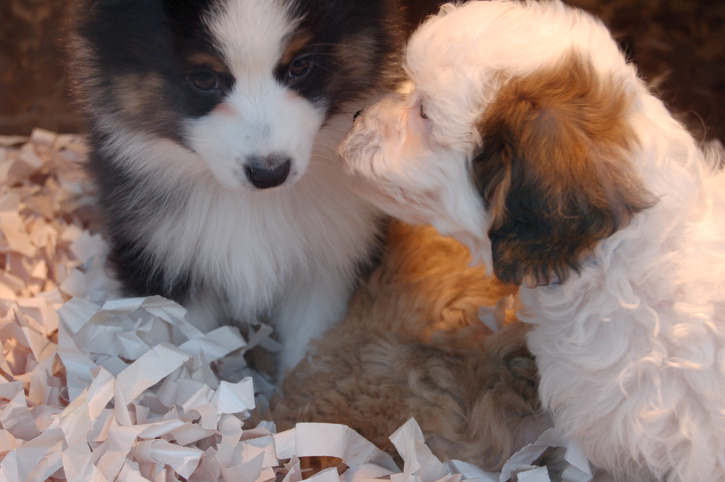If you’re thinking about selling, or giving away, a cat or a dog – there are some things you need to know. It’s a good idea to make sure you’re familiar with the new rules so you can avoid hefty fines – but not only that – it’s simply good practice!
The recent Parliamentary Inquiry into Companion Animal Breeding Practices has brought forward changes to legislation in regards to selling and giving away kittens, cats, puppies and dogs. From the 1st of July 2019, selling/giving away these animals in NSW will require the owner to provide an identification number in all advertisements. Failure to do so can incur an on-the-spot fine of $330, with a maximum penalty of $5,500 in court.
These changes will apply to: posters, community notice boards, online advertising (Gumtree, Trading Post, Facebook, Instagram, Trading Post etc).
If you are looking for a new pet, also check that the seller has complied with the rules, and if not report to your local council.
What types of identification are included?
Some forms of identification include:
- breeder identification number
- a microchip number
- a rehoming organisation number.
In almost any event, sellers will need to provide this identification number. This applies regardless of how old the animal is, whether or not you’ve bred the animal, or where you are planning to advertise the animal for sale/giveaway. It also applies even if the cat/dog isn’t even born yet, or whether or not you’re a ‘hobby’ breeder or a professional breeder.
Dogs in NSW also need to be registered by the time they are six months old, and cats by the time they are four months old. This means that if a dog or cat over the relevant ages is being sold or given away, they must be registered before their ownership can be transferred.
Are there any exemptions?
There are a small number of exemptions from the new laws. Working dogs that are not required to be microchipped under the Companion Animals Act 1998 and are not required to have an identifying number show in any advertisements. Other animals the new requirements will not apply to, are any dogs that are declared or even proposed dangerous, menacing or restricted dogs, since these dogs aren’t allowed to be sold or advertised for sale/giveaway in NSW.
How can I get an identification number?
Microchip
There are a number of ways to get an identification number, one of them being an microchip number. This is a 15-digit number which is unique to each animal. In NSW, all cats and dogs are required to be microchipped by 12 weeks of age. The easiest way to find an animal’s microchip number is to take them to the vet and they will scan it for you. They will be able to microchip your cat or dog if there isn’t one already implanted. Alternatively, you can search the NSW Pet Registry.
Of course the new rules are not the only reason to get your pet microchipped – it’s simply the best way to help make sure your pet finds it’s way home, should it go walkabout.
Breeder registration number
To check the accuracy of the registration number of the breeder, you can search the NSW Pet Registry. This will provide you with confirmation of not only the breeder registration number, but of details such as microchip number, rehoming organisation number (if you obtained your pet from a place such as an animal shelter), and any other details the owner has recorded.
What will these new changes help with?
These changes will help anyone who is wanting to buy a cat or dog to find out important information about that particular animal. The NSW Pet Registry will enable people to find out what details the present owner has listed. These include the age of the cat or dog, the sex, the breed, whether it is desexed, and whether or not it is already registered.
What about other Australian States?
This new legislation will bring NSW into line with most other states in Australia.
Queensland
Anyone selling or giving away dogs in QLD must provide an identification number, unless the dog was born before 26 May 2017. If the dog was born after this date, the legislation doesn’t apply.
Victoria
Victoria has also brought in new legislation which takes effect on July 1, 2019. As of this date, a microchip number is required to be provided in all advertisements when selling/giving away a dog. The only exemption is if a veterinarian has provided a certificate to say the animal cannot be microchipped due to the possibility of it having a dangerous impact on the animal’s health.
South Australia
In South Australia , the seller of a dog or cat must make sure that the advertisement contains certain information. This information includes:
- The name of the seller
- The phone number of the seller
- The name of the breeder
- The phone number of the breeder and, if they are registered, their breeder identification number
If the seller doesn’t abide by these conditions, they can face a fine of up to $5,000. There is an exception to this rule, and that applies to registered breeders who are selling the animal to another registered breeder.
Western Australia
The legislation in WA states that dogs over the age of three months must be registered, and cats must be sterilised, before they are allowed to be sold/given away.
Who enforces the laws?
The NSW Police, RSPCA NSW, and Animal Welfare League NSW are all agencies who will have the power to enforce the new advertising laws. Contrary to popular belief, local council officers will not have the power to enforce these laws.
So – do the right thing, not just because it’s the law, but because it is simply good practice and should help in the fight to eradicate puppy farms.
Sources:
- Parliamentary Inquiry into Companion Animal Breeding Practices
- Companion Animals Act 1998
- NSW Pet Registry
- Department of Agriculture and Fisheries Biosecurity Queensland
- Victorian State Government
- Legal Services Commission of South Australia
- Department of Local Government, Sport and Cultural Industries
- NSW Police
- RSPCA NSW
- Animal Welfare League NSW







Leave A Comment